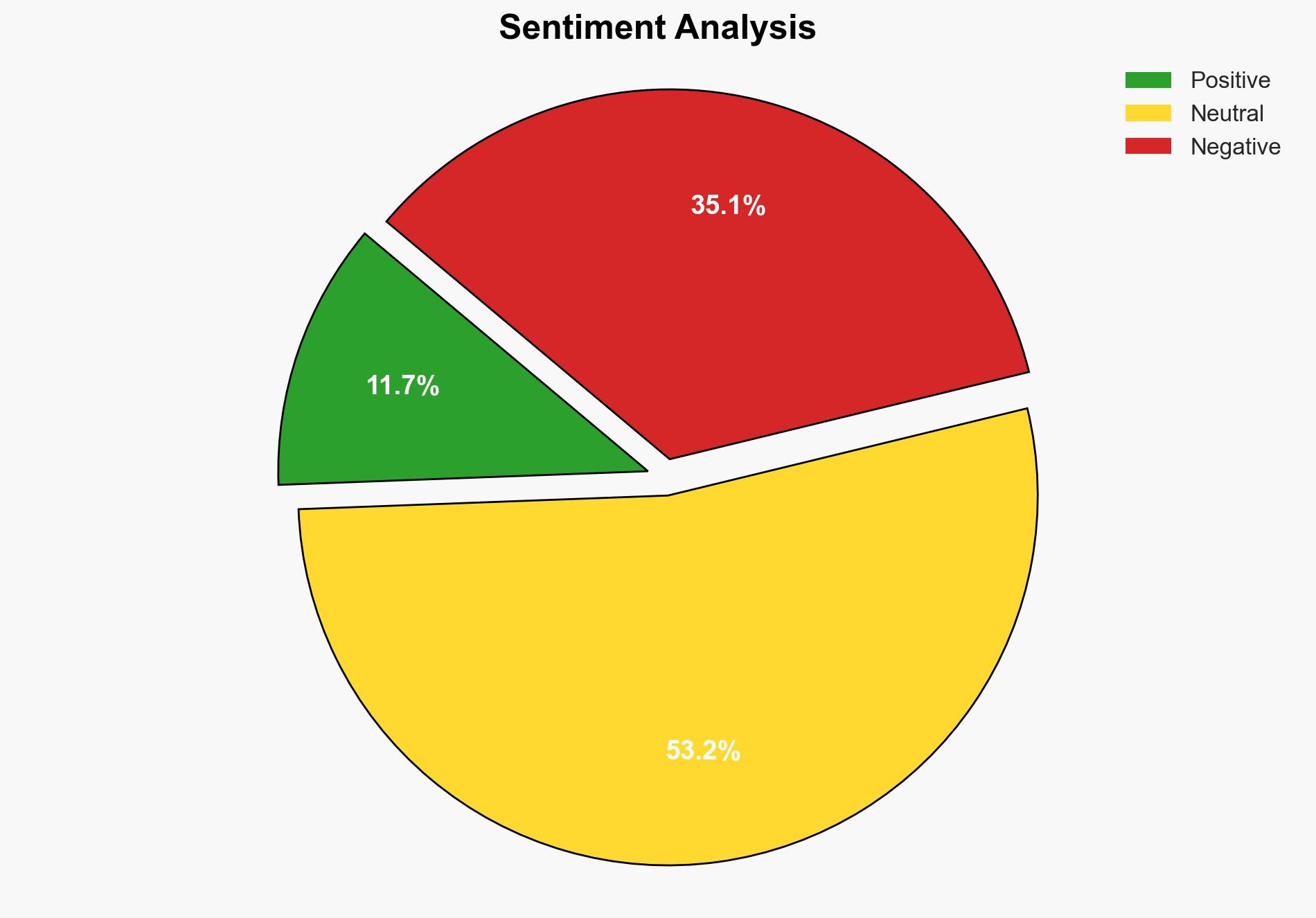Pakistans war on terror approach is dangerous – Al Jazeera English
Published on: 2025-03-19
Intelligence Report: Pakistans war on terror approach is dangerous – Al Jazeera English
1. BLUF (Bottom Line Up Front)
Pakistan’s current strategy in its war on terror is increasingly being criticized for its potential to destabilize regional security and exacerbate existing tensions. The approach of deflecting responsibility onto neighboring countries and employing military actions that violate international norms may lead to further insurgency and civilian casualties. It is crucial for Pakistan to reassess its strategies to avoid long-term detrimental impacts on regional stability and international relations.
2. Detailed Analysis
The following structured analytic techniques have been applied for this analysis:
General Analysis
Pakistan’s approach to counter-terrorism has been marked by military operations that often disregard international law, particularly concerning sovereignty and civilian protection. Recent events, such as the hijacking of the Jaffar Express train by the Balochistan Liberation Army (BLA), highlight the internal security challenges faced by Pakistan. The subsequent military response, which resulted in civilian casualties, underscores the risks of collateral damage in counter-terrorism operations.
Pakistan’s strategy of attributing blame to Afghanistan and India for terrorist incidents reflects a pattern of externalizing internal security issues. This deflection not only strains diplomatic relations but also complicates efforts to address the root causes of insurgency and terrorism within its borders.
3. Implications and Strategic Risks
The continuation of Pakistan’s current counter-terrorism strategy poses several risks:
- National Security: The potential for increased insurgency and retaliatory attacks within Pakistan.
- Regional Stability: Escalation of tensions with Afghanistan and India, potentially leading to broader regional conflicts.
- Economic Interests: Disruption of trade and investment due to instability and security concerns.
4. Recommendations and Outlook
Recommendations:
- Engage in diplomatic dialogue with Afghanistan and India to address mutual security concerns and reduce tensions.
- Implement strategies that prioritize intelligence-led operations over broad military actions to minimize civilian casualties.
- Invest in socio-economic development programs in insurgency-prone regions to address underlying grievances.
Outlook:
Best-case scenario: Pakistan adopts a more balanced approach, leading to improved regional relations and reduced insurgency.
Worst-case scenario: Continued military actions and diplomatic tensions result in escalated conflict and regional instability.
Most likely outcome: Incremental changes in strategy with ongoing challenges in balancing security and diplomatic efforts.
5. Key Individuals and Entities
The report mentions significant individuals and organizations such as the Balochistan Liberation Army (BLA) and the Tehreek-e-Taliban Pakistan (TTP). These entities play crucial roles in the regional security dynamics and are central to the ongoing conflict and counter-terrorism efforts.





